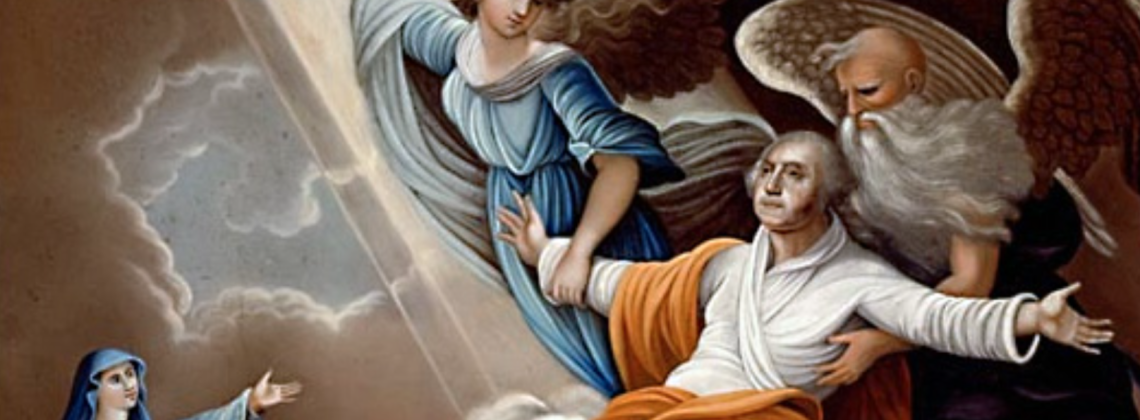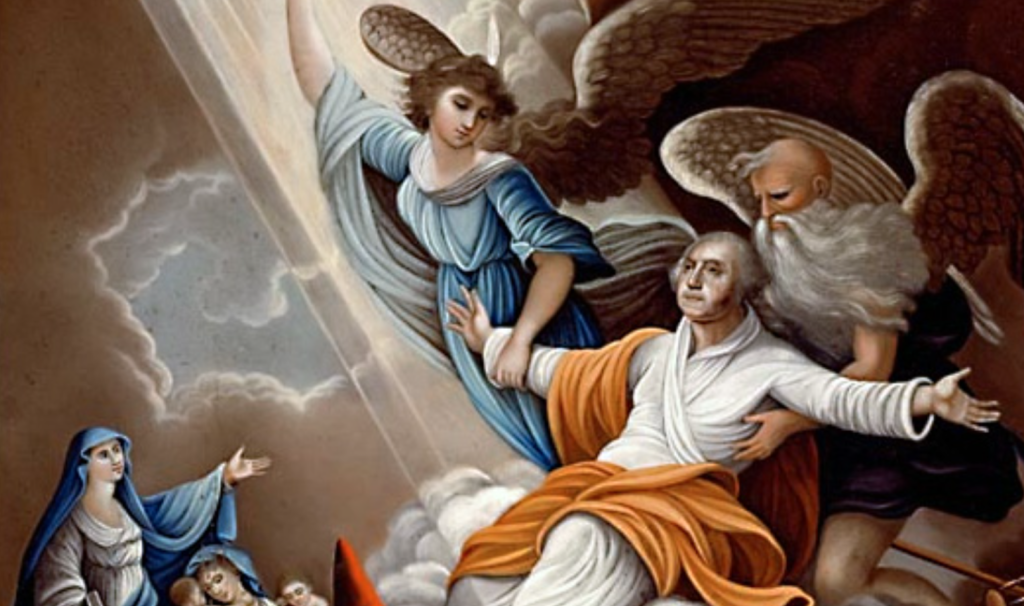

Recognizing an age-old threat
We Americans often forget that sacral rulership was the rule in the ancient world, as throughout most of premodern history. A sacral leader was sometimes simply regarded as divine (as with Egyptian Pharaohs, Alexander the Great and many of his successors, all Roman emperors, emperors of Japan, etc.). More often, though, he was seen as a special representative of the god or gods for carrying out a divine mission. Whether he was the shepherd of the gods like many Sumerian leaders, the high priest of Ashur like the Assyrian kings, the representative of Ahura-Mazda like the Persian kings, or holder of the Mandate of Heaven, like the Chinese emperors, an aura of sacrality surrounded ancient leaders.
The flourishing of the people depended upon their leader as mediator between the gods and humans. Peace, conquest, protection, health, prosperity, bountiful harvests, and caretaking of the gods’ creation all depended upon his sacral leadership as God’s appointed leader.
Visions of sacral leadership did not die with the ancient world and would continue to dominate the western world via leaders from Charlemagne to Louis XIV. Since then, both Christian and secular voices have spoken out strongly against sacral rulership. Secular minds dismissed it because it was sacral, Christian minds because it often tended toward idolatry.
When Americans remember the ancient world, we usually fixate on two notable exceptions to sacral rulership: Greek democracy and Roman Republicanism. We even sometimes imagine the two vying for primacy of place, or we debate whether America is primarily the modern descendant of one or the other. But we often forget that these were fragile experiments, however powerfully and vitally they have been invoked as models in our modern western world. They were tiny minority reports.
Deeply ingrained tendencies in the ancient world decidedly opposed them. A rather short-lived Athenian democracy tragically descended into, first, despotism and then the sacral monarchy of Alexander the Great and his successors. We are told that hardly a half-century after Alexander’s death one of his fairly forgettable successors was greeted in Athens with a vivid hymn of sacral praise: “His appearance is majestic, his friends all around him and he in their midst, as though they were the stars and he the sun.” It did not take the Athenians long to revert to age-old and long-term ancient patterns.
At Rome, the once proud Republic also descended into tyranny, as leaders even before the famed Augustus began to project age-old trappings of sacral leadership. The title Augustus itself was deeply rooted in such notions of leadership, and all of Augustus’s successors followed his lead. Pagan emperors at first, and then Christian emperors beginning with Constantine, all presented as sacral rulers.
The well-worn but nonetheless vital lesson that democracies and republics are very fragile and thus in constant need of support and defense is as old in America as the Founders themselves. What they well knew, but we often forget, is how strongly republics and democracies stood against a relentless tide. The Founders knew a very broad ancient world and sought to learn from it. They did not equate the ancient world simply with Greek democracy and Roman republicanism. They knew that these forms of government were marginal, and they knew that they opposed the ancient currents of history that had continued, stretching close to their own day.
Back in 2009, a famous Jib-Jab video parodied a type of messianism embraced by Barack Obama’s most loyal followers. “He’s Barack Obama, he’s come to save the day,” the song went. Fighting evil forces, Obama succeeded because of his super-hero powers and because he was “real good at the internets.” I laughed along with many, recognizing that some did appear to be projecting a type of sacral leadership upon Obama.
When I watched the now-viral faux Paul Harvey “God Made Trump” video, I did not see parody even if it reeked of unintentional farce. As the video proclaims the divine choice of Trump and his mediatorial role for the American people, this historian of the ancient world hears familiar strains. In claims of Trump as caretaker of God’s creation, I heard familiar echoes of praise of ancient Assyrian and Babylonian kings. I listened to how “God gave Trump,” who would not rest, and heard echoes of the Byzantine Emperor (and thoroughly sacral ruler) Justinian priding himself on doing exactly the same as God’s emissary. I should not have been too surprised since for some time now some evangelical Christians have been proclaiming Trump a “New Cyrus,” the old Cyrus a sacral monarch of the ancient Persian Empire.
Ancients would learn, and our Founders too, that the language of sacral rulership is incompatible with a functioning democracy or republic. In 1787 Ben Franklin famously declared that with the Constitution, the founders had given America “a Republic, if you can keep it.” Franklin knew well the perils faced by republics because he had an extensive understanding of the broader ancient world. He even advocated that an exhaustive work on ancient history—stretching far beyond Greece and Rome—be required reading of all children in the Commonwealth of Pennsylvania. It was in part his understanding of the ancient world and the seemingly inevitable collapse into either chaos or sacral rulership that concerned him. I think he along with many founders would be alarmed by “God Made Trump,” and likely would see in it a real threat to the Republic.
“If you can keep it,” indeed.
Mark W. Graham is Chair of the History Dept. at Grove City College, and the co-author of Ancient Empires: From Mesopotamia to the Rise of Islam (Cambridge University Press). He is currently under contract with a book on “Antiquity in the American Imagination.”
Image: Apotheosis, Sacred to the Memory of Washington, c. 1802 Peabody Essex Museum 2007 Photo Sexton-Dykes